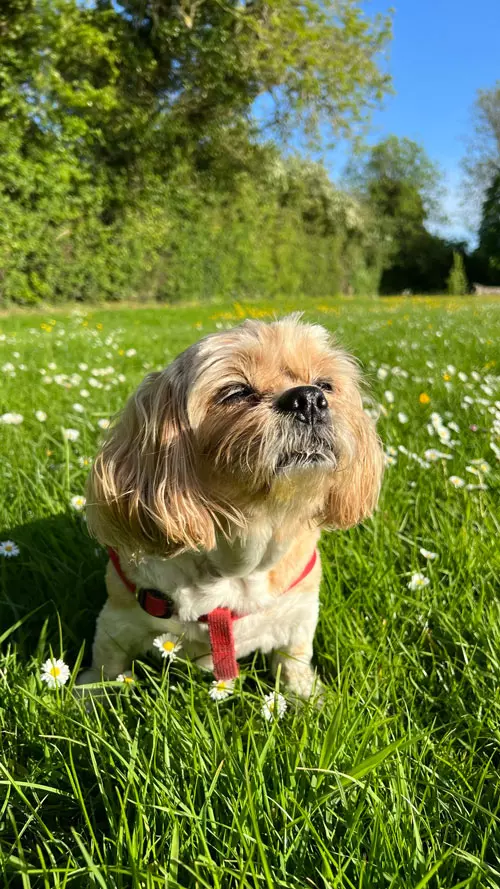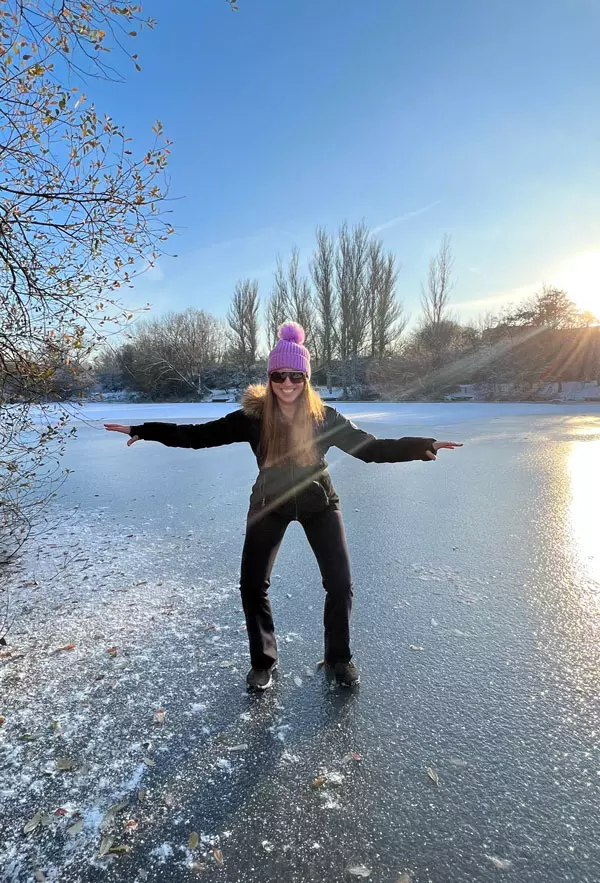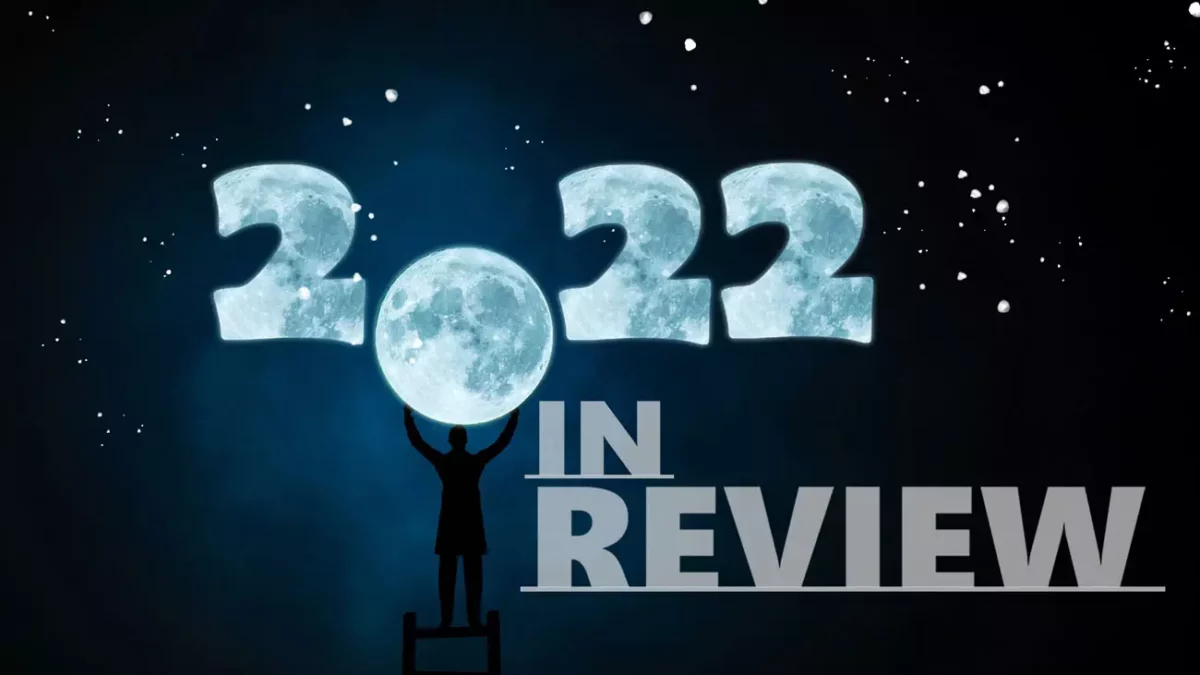2022 was a turbulent year. For some of my friends and acquaintances it proved fruitful, whilst for others, myself included, it was best described as downright draining. I know for a fact, though, that complaining won’t help – getting stuck in the past has never been an experience I enjoy, nor has it made me smarter or better in any way.
The only activity that has been remotely useful and involves looking backwards has been the so called “connecting the dots”. With that in mind, I looked at last year and asked myself about the lessons from 2022 and their potential application to make life a little better now and in the future. If this resonates with you, too, I’d love to hear more about your experience, so head over to the comments and say “Hi”.
Here are my three lessons and how I identified them.
Lesson 1: There’s no such thing as bad decisions – there are only decisions
Like many people I have always been convinced that there’s a wrong way and a right way to do pretty much everything in life, from eating food and breathing, to building a career, relationships, and life as a whole. In 2022, however, I found myself needing to make a huge number of decisions. Some were the small daily ones, such as what to eat and how to dress, whilst others were bigger and more life altering.

Time after time I tried to crack the code and make each decision better than the previous one, and time after time I seemed to miss the mark by a little. Every single decision I took, regardless how small, appeared to produce long and short term results. Shocking, right, but bear with me. What I hadn’t realised in previous years, was that whenever an act would generate an immediate positive result, it would inevitably bring a negative one at some point in the future. If, for example, I ate less calories a few days in a row and felt better about myself (I’m more in control, right?), I would inevitably end up feeling hungrier and more fatigued a week later.
The same was true for pretty much everything I did. Gaining muscle made me feel stronger and better, but it would end up changing how my clothes fit me, which would inevitably make me feel bad about myself. I know what you’re thinking – everything has consequences, duh. And that’s exactly my point. Whilst sometimes consequences are very obvious (like in the muscle gain example) and we could theoretically prepare for those, we’re absolutely never ready when said consequences materialise themselves. Or at least I wasn’t.
Every time I chose to prioritise one activity over another, even if that was “the right thing to do”, I inevitably felt the anxiety of not having completed task 2.
As a quote I recently saw stated, the dick of consequences rarely comes lubed.
What did this realisation give me, you may ask? It gave me less pressure. See, when presented with the necessity to make yet another decision, I no longer drive myself mad trying to make the best one because there’s simply no such thing. I’ve come to terms with the fact that there’s a negative side to absolutely everything I do or not do, and I am not escaping those consequences. So I’ve lost the urge to try and control the outcome of my actions which made life a little easier. At least for the first week of 2023 – we’ll see what the future holds.
Lesson 2: Nothing can derail you faster than compromising your values
Disclosure: Firstly, this is not the typical “be true to yourself” message. Also, these next few lines include some realisations that I did not appreciate. If you would like to spare yourself some mental turmoil, leave now.
You’re still here? Cool. Let’s dive into some brutal honesty then.

During one of the many walks my sister and I took last year we spoke about AI, the changes in the workplace, universal basic income, societal status, pride and other such philosophical concepts. We ended up asking what I thought was an inevitable question: if we had all our financial needs met, would we continue working so we can get higher up the societal ranks? Surprisingly, the answer for both of us was “No”. Why surprisingly? Well, because we both love our trade and seeing our efforts produce results gives us a buzz we can’t seem to get enough of.
We have, however, both reached an age where it is painfully obvious just how quickly time flies. At this age it is also quite clear that the world moves and no one really matters as much as we may think that they do. This realisation is not because we find ourselves insignificant, but because in the grand scheme of things, no one is valuable enough for the Earth to stop doing its rounds . Not even those who think of themselves as the world’s puppet masters. They might influence a stream here or there or change a few things, but in essence, the world would carry on without them just as fine.
And based on those two factors, lessons learned through age and the realisation that no one really changes the world as much as they think they do, we couldn’t help but admit that it would actually be nice to do some more travelling, more ice skating, learn to roller skate, learn to crochet, try to capture the beauty of a sunset on a camera, stare into the sunrise with a hot cup of steamy coffee over and over again, garden, dance, walk, talk, laugh, make new friends, tell stories, fall in love, fall out of love, eat, drink, read, sit in license, and other activities not producing a penny.
And then I asked the question, the answer to which still keeps me awake at night: if these are the things I’d rather do, then why am I not doing more of them? The answer was simple: because as many others, I would do more to avoid paid than to gain pleasure. How so? Let me elaborate.
I like the comfort of having a home, a nice sofa to sit on, a warm bed, and some food. I like being able to pay my bills, buy the things I want when I feel like it, go places, eat out, and generally have a comfortable life. But as many others I am conditioned to think that one is able to do those things by having a regular income that comes from working set number of hours. This conditioning that begun at my early years and continued throughout my formation as an individual is so strong that I won’t even question the status quo, let alone try to change it.
See, I would stay put on school nights and go to bed at a certain hour, and eat specific type of food and buy specific type of clothing to maintain said status quo. I would do things almost like a robot because I know that they would produce predictable results that would retain the level of stability that I am so used to. Yet, my reality is that I’d rather do other things. I’d rather go out randomly and not look at my watch when I’m out. Or I’d have people in and we’d tell stories and talk about life, and love, and whatnot.
But to change my outputs I need to change my input, a.k.a. what I do, or at the very least – how I do it.
But how does this tie to the values I mentioned earlier?
Well, everything we do on a day-to-day basis (and I mean EVERYTHING) will either serve the purpose of helping us avoid paid, or it will be directed at gaining pleasure. Going to bed at a certain hour so I am rested and capable the next day is not something that I necessarily want to do, but it does help me avoid pain, so I do it without even questioning it. I do not nap at 3 or 4 in the afternoon despite how much I may want it, because it falls within working hours, so the act of neglecting that urge I feel helps me avoid the pain of having to explain myself.
Very often the things that we do (or the things we force ourselves not to do) to avoid pain are a compromise with our values – they have no benefit, other than short term satisfaction of some requirements that would help us maintain the fragile status quo that would, in turn, help us maintain pain avoidance.
OK, so what then? Well most of us can’t just flip the switch, withdraw our savings and live as we please, a.k.a. can’t simply start doing the things that bring us pleasure or hold the potential to. But there must be a way to balance things out, right? There must be a system or either 70:30 or 60:40, where at least some of the things we do on a daily basis are directed at what we truly value in life. Otherwise, we are stuck in survival mode and we’ll leave life having existed, not lived.
So, as a result of this realisation I often perform an internal check when I find myself wanting or feeling that I need to do something. Since realising that I can’t and won’t compromise with myself as much as I may have done in the past, there’s now a limit to the things I am willing to do to maintain the status quo. Some activities I have decided to completely throw out of my life. Others, I’d do but only partially and third ones I would still do 100%, but it is now a conscious decision and for every pain avoidance act, I’d inevitably, no-questions-asked reward myself with a pleasure-inducing one.
So far, maintaining this balance feels like one of the best things I’ve done for myself and I feel a lot more present and aligned with who I am.
Lesson 3: The profound meaning behind the importance of now
Over and over again books, people, and events kept “spamming” me with how important the now is and how much I should value the present, but for years I didn’t quite understand the true meaning of it. Don’t get me wrong, I understood the words, but not the practice of valuing my present moment.
To be able to understand my “now”, I first needed to understand what I cherish and this partially happened during the conversation I mentioned above. I also had a good hard look at my 38 years on this Earth and the many things I’ve done and gone through.
Not surprisingly, the moments I remember have little to nothing to do with work, but with people and other creatures. It is important to note here that I am not antagonising work. In reality, many if not most of the people who have brought colour into my life are some I’ve met whilst working or as a result of work placing me in specific locations or situations. But what made the memory important was not the job, it was the soul of these individuals and the shared moments, thoughts, and emotions.
And this is what made the importance of now finally clear. It wasn’t about what I am doing every single moment of every single day, but about the people I get to share that moment with, the memories we’ll create together, the help we’ll give each other to experience something then or in the future.
The only truly wasted time in my life has been in toxic environments.
So here it is. To be present in the moment I need to share those moments with people I can appreciate, share a laugh or a dream with, work tirelessly with, face challenges with, and most of all – trust. All of the sudden, my ability to be here and now was easy to define. If I felt good in someone’s company I’d be present. If I didn’t, the importance of now commanded that I remove myself from the situation at all costs.
How am I implementing this you may ask. I’m simply choosing not to ignore the signs that clearly show me when I don’t want to be somewhere. I’m also choosing to do something about it every single time. It doesn’t mean that I’ll be rude – if I don’t want to be somewhere that doesn’t mean that others feel the same way. In fact, they might really want me to be there and be present. But instead of giving them a fake, half-enabled version of myself I’d much rather excuse myself politely and go be where I’d really like to be.
Here are a few examples of the things I’ve said in such instances:
- I am sorry to cancel the date, but I have something I’d really like to dedicate myself to.
- I won’t make it to your party tonight but I hope you have a marvellous time.
- I have a task that’s sitting on my mind and I will be a lot more productive if I focused on that right now, than participate in the meeting – I won’t be able to focus and thus the value I’ll bring at this point will be limited
If you look at each of the above examples, you’ll see that there’s no shade thrown at the other people as neither one of them holds any responsibility for what I may feel as a good way to spend my “now”. In each of the instances there’s an attempt to give some clarity yet there’s lack of detail and I’d only usually provide it when such is requested specifically.
And now my now is so much better. I am a lot more present more of the time, I don’t try to escape into social media, I don’t need to constantly distract myself. I’ve found a version of here and now that works for me, because I make it work. I focus on ensuring that I mean to be where I am, with the people I am, and doing what I do. And when that’s not the case, I work to change things.
And with this I will end the summary of lessons from 2022 and invite you to share your experiences and thoughts in the comments below.

